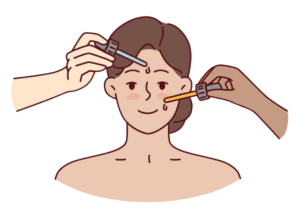
Collagen is a protein that keeps skin, hair, and nails healthy. Also, it is vital for joint health and muscle recovery. However, while some claim it is a wonder, others argue that supplements do not benefit our health.
When my friend Emily noticed the first signs of aging in her skin, she became obsessed with collagen. She tried different vitamins at first, but nothing seemed to help. I then asked Emily to take a collagen supplement, which I’ve been doing for a while.
After several weeks of consistent use, Emily exhibited smoother and more radiant skin, while her joint pain subsided. Consequently, my good friend became a collagen enthusiast in her daily routine. She also experimented with recipes such as smoothies and soups containing collagen.

Our bodies produce less collagen as we age, leading to wrinkles, joint pain, and weaker bones. Therefore, it is essential to include it in our lives.
Maintaining healthy collagen levels is crucial for reducing the risk of osteoporosis. This vital protein gives skin a more beautiful appearance and helps bone density with calcium absorption. Besides its aesthetic and structural benefits, collagen provides lubrication to our joints, allowing smooth movement and reducing the risk of injury.
If you want to increase your collagen intake, consider adding some delicious options to your plate, like beef, chicken, fish, and eggs. These foods are fantastic sources of collagen that can help you maintain healthy skin, hair, and nails and promote joint, bone, and gut health. Don’t hesitate to include them in your diet today! But getting enough collagen from diet alone is hard, so many people take supplements.
It is important to note that collagen is a naturally occurring protein in the body. But over time, its production decreases, and wrinkles start to appear. It is necessary to stimulate its manufacture and ensure that the skin is in top shape as long as possible to fill this gap.
What are the effects of collagen on the skin? It fights dehydration and sagging skin. Some specialists recommend massages to reactivate circulation and collagen production, while others recommend hyaluronic acid injections. Rehydrating and stimulating collagen production can be achieved with hyaluronic acid.







